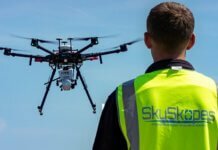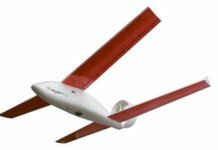Let’s try this again: Today, President Donald Trump signed into law the National Defense Authorization Act (NDAA) for Fiscal Year 2018, which includes a provision to reinstate federal registration for hobbyist unmanned aircraft systems (UAS).
The Federal Aviation Administration’s (FAA) registration rule first went into effect in December 2015. Under the rule, both hobbyist and commercial UAS operators were required to register drones weighing more than 0.55 pounds and less than 55 pounds.
However, in May, the U.S. Court of Appeals for the D.C. Circuit ruled that the FAA violated the FAA Modernization and Reform Act of 2012 when it placed registration requirements on non-commercial UAS operators. The court then vacated mandatory registration for hobbyists, and the FAA even offered refunds on the $5 registration fee, as well as deletions from the registration system.
Now, as expected, the newly signed H.R.2810 states as follows under Section 1092:
“The rules adopted by the Administrator of the Federal Aviation Administration in the matter of registration and marking requirements for small unmanned aircraft … that were vacated by the United States Court of Appeals for the District of Columbia Circuit in Taylor v. Huerta … shall be restored to effect on the date of enactment of this Act.”
In response, the Small UAV Coalition is applauding the news and thanking Congress for “restoring Federal Aviation Administration authority to maintain a national UAS registry for both commercial and recreational operators, a critical mechanism for safety and accountability.”
“With registration reinstated, the coalition looks forward to working with the FAA and Congress to implement remote identification and tracking standards that will be critical to ensuring safe integration and unleashing the potential for increased and expanded commercial UAS operations,” the group says in a statement.
Likewise, the Commercial Drone Alliance is voicing its approval of the change:
“The Commercial Drone Alliance has been supportive of requiring registration of all drones, whether flown commercially or for recreation,” says Gretchen West, co-executive director of the alliance, in a statement. “Registration and markings help ensure accountability for all operators flying in the National Airspace System, which creates a safer airspace. We were pleased to see the language requiring registration included in the NDAA bill and are eager to see how this language may be influential in other FAA-related bills.”
Section 1092 of the bill also includes provisions on collaboration between the FAA and Department of Defense (DOD). For one, the bill states that the FAA and DOD “may collaborate” on sense-and-avoid technology for drones. This includes the following, according to the legislation:
- Developing “civil standards, policies and procedures” for drone integration by leveraging the DOD’s experience in UAS;
- “Informing stakeholders” about the development of sense-and-avoid technology for UAS, as well as UAS R&D related to “matters involving human factors, information assurance and security”;and
- The FAA administrator’s participating in DOD testing of drone sense-and-avoid technology, including at federal test sites.
Overall, the NDAA “authorizes fiscal year 2018 appropriations principally for Department of Defense programs and military construction and Department of Energy national security programs; authorizes recruitment and retention bonuses, special payments and other authorities relating to the U.S. Armed Forces; and provides authorities related to and makes other modifications to national security, foreign affairs, and other related programs,” according to a White House press release.








